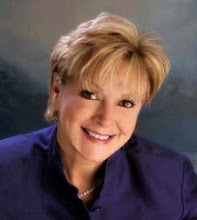As you hear about one financial disaster after another, you can't help but wonder how safe your own cash is during these times. Financial institutions across the country are getting a multitude of calls from concerned, and sometimes, panicked consumers. Bank deposits are guaranteed by the Federal Deposit Insurance Corporation(FDIC) up to $100,000 per person, per insured institution. Most retirement accounts are also insured up to $250,000. Those consumers with more than$100,000 in savings often split their money between institutions in order to get around the $100,000 max per individual. If you don't want to spread your wealth between banks, you can also open accounts as trusts for your children or a joint account with a spouse. Another option which is gaining in popularity is the POD trust account (payable on death). When setting up the account, a beneficiary or beneficiaries must be named who will receive the money when the accountholder dies. There are certain guidelines and limitations so you need to check with your bank for more information. The Wall Street Journal has a few additional suggestions for safeguarding your money which are featured below. They have also given readers ten ways in which you can protect your money during a financial crisis. Brokered CDs. Buying multiple certificates of deposit at once through a brokerage firm provides a fast way to spread out money across different institutions, capturing the full FDIC protection. CDARS. This deposit-placement service, short for Certificate of Deposit Account Registry Service, disperses deposits into different individual CDs of up to $100,000 each, up to a maximum covered amount of $50 million. Retirement accounts. Money deposited in IRAs, Roth IRAs and certain other retirement plans is insured up to $250,000. Credit unions. Deposit insurance for credit unions works in much the same way as FDIC insurance does for banks and thrifts, except that the funds are insured by the National Credit Union Share Insurance Fund. Revocable trusts. Under this estate-planning strategy, the owner assigns beneficiaries but retains control of the assets during his lifetime. The FDIC insures the interests of each beneficiary up to $100,000 each. Along with the POD account mentioned above, others are formal trusts, which are typically set up by an estate attorney. Even in troubled times as these, the odds of your bank failing is slim. While the FDIC won't release names of banks they are keeping an eye on, you can go to http://www.bankrate.com/brm/safesound/ss_home.asp to find out the "relative financial strength and stability of U.S. commercial banks, savings institutions and credit unions". If you do not have funds in an institution not insured by the FDIC, then to be on the safe side, now is the time to move it.
From: MyHomeManagementClub.com
Wednesday, September 24, 2008
Subscribe to:
Post Comments (Atom)

No comments:
Post a Comment